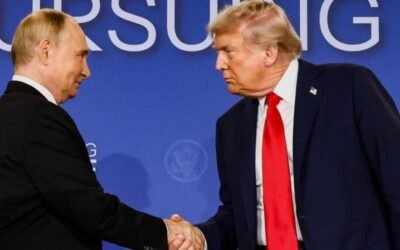One of the projects of the Belt and Road initiative is the China-Pakistan Economic Corridor (CPEC), which is no longer an economic project but a keystone of global power conflicts between the United States and China. With the US-China trade war growing since 2018, with the two nations imposing tariffs and restrictions imposed upon each other, the rivalry has been extended into other fields such as worldwide trade, technology, and strategic cooperation. Pakistan now has extra pressure due to this rivalry.
Although CPEC is expected to bring enormous gains in terms of infrastructure development, energy, and regional connectivity, it remains a source of concern to Western powers who believe that China is exploiting the BRI projects to internationalize its influence. The U.S. has also decried BRI by citing that it generates debt loads and erodes transparency in partner nations.
With the expansion of economic relations between Pakistan and China under CPEC, the country is also subject to more Western pressure, particularly when the same is experiencing issues with its economy still being under the control of the Western powerhouses in the form of the IMF and World Bank. Pakistan is writing an economic vision in the form of an international tight-rope walk.

Source: Journal of Law & Social Studies
Strategic Pressures & Trade-Off
Pakistan is being increasingly urged to very tactfully build up relations both with China and the United States. On the one hand, China is the biggest investor in Pakistan under CPEC, and both countries tend to refer to their relationship as an iron brotherhood. Conversely, Pakistan continues to rely on the Western markets, aid, and funds.
As a case in point, the U.S has been, in the past, one of the oldest export markets of Pakistan, and the IMF bailout packages that have frequently been supported by the U.S. have continued to be essential in stabilizing the Pakistani economy. But with the intensification of the CPEC, the transparency, safety, and long-term effects of Chinese investments have become of concern to Western nations. The U.S and its allies have cautioned the Pakistani government on overreliance on China and asked them to be more transparent in CPEC deals.

Source: Dawn
In their reaction, it is usually common to hear Pakistani leaders attempt to adopt a neutral tone by stating that the nation does not wish to position itself to take sides that have been intensifying conflict between the US and China. However, the situation is changing in practice, and neutrality is becoming more difficult. The international politics are turning out to be a with-us and against-us kind of world, particularly in the spheres of commerce, militarism, and technology.
The problem is that Pakistan has to continue to figure out how to enjoy the benefits of Chinese investment without annoying the West, a difficult balancing act that cannot always be accomplished.
Digital Sovereignty, Technology, and Surveillance
The technology is one of the most delicate spheres that the US-China rivalry can influence the CPEC. Within the CPEC and the overall cooperation, such Chinese organizations as Huawei and ZTE assist Pakistan in constructing digital infrastructure, 5G networks, fiber-optic cables, and smart city surveillance systems.
There have been indications that these projects will improve the connectivity of the countries and bring advanced services, but this is of high concern to Western powers. The U.S. has been warning the nations against using Chinese tech companies, as it could endanger national security since it makes surveillance or leaks possible, especially involving 5G.
These digital ties with China are expedient and cheap technology solutions for Pakistan. But there is a risk of becoming overdependent on Chinese technology, which has to do with digital sovereignty, that is, being able to manage and secure your data and communications. Democracies are urging partners to block or restrict Chinese technology, creating an awkward dilemma for Pakistan.
Furthermore, Pakistan may encounter limitations or decreased collaboration with European and American digital companies in the event that it proceeds with Chinese-constructed frameworks. Meanwhile, withdrawing the Chinese support may hold up the digital evolution of Pakistan. This war of distraction makes Pakistan tread the thin line between technological advancement and geopolitical threat.
The Path between Opportunity and Overdependence
The trade war between the US and China has transformed the economic situation in the whole world, and the effects of that trade war are also ripple effects. Some countries, like Pakistan, were affected particularly because of CPEC. Since China tries to shift the trade routes and lessen the dependence on the Western markets, CPEC is a big part of Beijing’s response to the rising pressure on the part of the US. In the case of Pakistan, this has created immense economic opportunity.
The Chinese investment in infrastructure, energy, and logistics is expected to fill the gaps in the development of Pakistan through the construction of roads, ports, power plants, and special economic zones. Such projects are viewed as an avenue to economic modernization and interconnectedness within a region when supply chains are reconsidered globally.
Nevertheless, the advantages of CPEC are becoming interconnected with the dangers of getting trapped in a polarized world. The US perception of the BRI, of which CPEC is a flagship project by China, seems to be a global power struggle mechanism. With the increase in tensions, the U.S. has cautioned nations such as Pakistan not to be too dependent on Chinese loans and technology.
Critics claim that CPEC has already expanded Pakistan, owing to China putting the country in greater debt, and most of these projects are carried out more with Chinese outfits and workers rather than local suppliers. In this regard, increased economic relationship between Pakistan and China can be seen to the benefit of growing political relationship amidst the possibility of causing trade seizure and aid relationship between Pakistan and the West, as seen by Washington.
At the regional and international levels, CPEC has emerged as the nucleus of a bigger game of strategic tugs. India is against the corridor because of its territorial disputes, whereas Iran and Afghanistan would gain economic advantages out of its development. However, the involvement in CPEC could further alienate Pakistan as part of the Western-led economic system in the face of an ongoing US-China trade war. With world powers increasingly making distinct boundaries on their areas of influence, Pakistan would need to maneuver through these waters, as CPEC, which used to be only an economic project, is now turning into a strategic challenge.




























